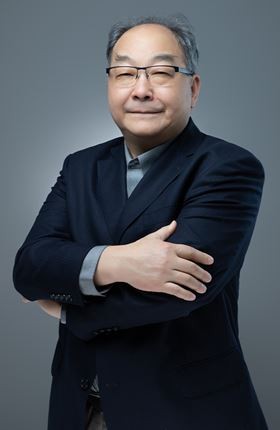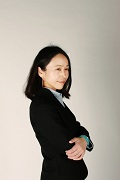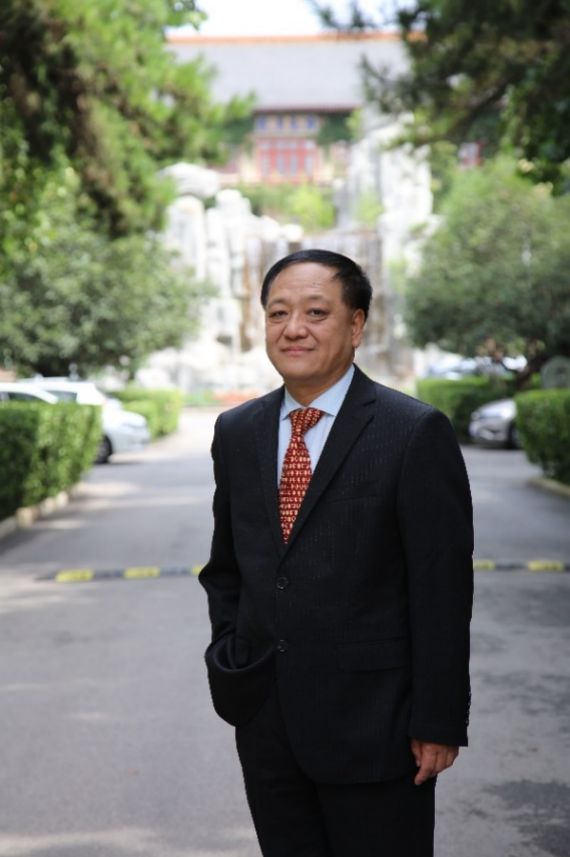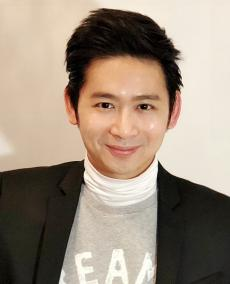Higher Education in the Era of Advanced Reasoning Models
Abstract
The panel aims to explore the implications of advanced reasoning models, such as DeepSeek R1, OpenAI's Deep Research, and Groke 3, on higher education. It seeks to discuss how these technologies can enhance learning experiences, inform curriculum development, and address challenges in educational settings.

Professor Xiangen HU (Facilitator)
Prof. Xiangen Hu obtained his Bachelor of Science and Master of Science degrees, both in Applied Mathematics from the Huazhong University of Science and Technology in 1982 and 1985 respectively. He also received his Master of Arts degree in Social Sciences and Doctor of Philosophy degree in Cognitive Psychology from the University of California, Irvine in 1991 and 1993 respectively. Prof. Hu took up an Assistant Professorship at The University of Memphis in 1993 and was promoted to Associate Prof in 2000 and Prof in the Department of Psychology in 2009. Meanwhile, Prof. Hu has been appointed Prof and Dean of the School of Psychology in the Central China Normal University since 2016 on a visiting basis where he has established good connections with the Chinese mainland. He joined PolyU in Dec 2023 as Director of the Institute for Higher Education Research and Development.
Prof. Hu’s research areas include Mathematical Psychology, Research Design and Statistics, and Cognitive Psychology. As an active researcher, Prof. Hu has secured significant research grants from various funding agencies, including the US National Science Foundation, US Institute for Education Sciences, US Army Medical Research Acquisition Activity, US Army Research Laboratories and US Office of Naval Research.

Professor Xiaoqing GU
Prof. Xiaoqing Gu is a professor and head of Department of Educational Information
Technology, Faculty of Education, East China Normal University. She is the head of
Shanghai Engineering Research Center of Digital Education Equipment. She earned her
Ph.D. in Educational Technology from East China Normal University. Professor Gu has
long been engaged in the research and practice of ICT in education. Her research interests
include learning science and learning technology, computer-supported collaborative
learning (CSCL), learning analytics and adaptive learning technology systems, artificial
intelligence in education.
Prof. Gu is the Chief Editor of the International Journal of Smart Technology
and Learning (IJSmartTL), Associate Editor of npj Science of Learning, and a Co-editor
of the special issue "Implications of Artificial Intelligence in Learning and Education" for
the same journal. She also serves as a Co-editor of the special issue "Inclusive Education
in the Age of AI" for The Internet and Higher Education. In addition, she is an
International Advisory Board member of the British Journal of Educational Technology
(BJET), and an Editorial Board member of the Journal of Computer Assisted Learning,
Journal of Computer in Education, Education Technology Research and Development,
The Internet and Higher Education, and the Journal of East China Normal University
(Educational Science) .

Professor Weiping HU
Prof. Weiping Hu is a second-class professor and doctoral supervisor at Shaanxi Normal University. He was a deputy to the 10th and 11th National People's Congress, a member of the 11th Shaanxi Provincial Committee of the Chinese People's Political Consultative Conference (CPPCC), and a doctoral supervisor of the Institute of Psychology of the Chinese Academy of Sciences. He is now the director of the Key Laboratory of Modern Teaching Technology of the Ministry of Education, the head of the Expert Group for Revision of National Science Curriculum Standards for Compulsory Education, the head of the Group for Revision of Curriculum Standards for Physical Quantity in High Schools, the vice president of the Chinese Youth Science and Technology Educators Association, the executive director of the Chinese Society of Education, and the president of the Branch of Science Education, etc. He is also the chairman of the Global Chinese Society for Science Education and a member of the executive committee of the International Society for the Study of Creativity and Innovation (ISSCI), He is also the chairman of Global Chinese Science Education Society, executive committee member of International Society for Creativity and Innovation Research (ISSCI), member of the editorial board of Journal of Creative Behavior, Creativity Research Journal, Gifted Education International and other domestic and international academic journals. He has undertaken 58 national-level and provincial and ministerial-level projects, published more than 300 papers in core journals at home and abroad, including more than 90 papers in SSCI, and entered the Elsevier China Highly Cited Scholars List twice in 2018 and 2019. He has received 31 national and provincial and ministerial level awards. more than 10 consulting reports and policy recommendations on science education have been approved by the central leadership or adopted by the Ministry of Education and other relevant departments, and the established thinking-based teaching theory has benefited more than 5 million students.

Professor Xiaoyong HU
Prof. Xiaoyong Hu is a doctoral supervisor who currently serves as the director of the Center for Faculty Development and the executive vice dean of the Institute for Educational Artificial Intelligence at South China Normal University, as well as the director of the Guangdong Teacher Training Center.
Prof. Hu focuses on the theories and policies of information technology in education, artificial intelligence in education, and innovative teaching methods using information technology. He is the principal investigator of several national-level research projects, such as those awarded by the National Key Research and Development Program of China and the National Social Science Foundation.
He leads several educational research and reform projects of Ministry of Education, such as the Virtual Professional Development Research Program of Teachers' Intelligent Education Literacy, a New Liberal Arts Educational Reform Project, and an Industry-Academia Collaboration Project. He developed "The Applications of Artificial Intelligence in Education", a nation-class online course, and has been awarded a National Teaching Achievement Second-prize Award for his contributions to education.

Professor Morris JONG
Prof. Morris Siu-Yung JONG is an academic at The Chinese University of Hong Kong (CUHK) where he serves as Professor and Doctoral Supervisor in the Department of Curriculum and Instruction, Director of the Centre for Learning Sciences and Technologies, Associate Director of the Hong Kong Institute of Educational Research, and Dean of Students of the Shaw College. The accolades recognizing his research and teaching contributions conferred by CUHK include Best Innovation Award for Knowledge Transfer 2013, Young Researcher Award 2018, Research Excellence Award 2021, Exemplary Teaching Award 2022, and Outstanding Research Impact Award 2024. Professor Jong’s research foci are learning sciences, STEM/ AI education, as well as technology-enhanced pedagogical design and implementation. Since 2021, he has been listed among Stanford University’s top 2% most-cited scientists globally. More recently, he has been recognized as Highly Ranked Scholar 2024 (Top 0.05%) in Education by ScholarGPS. Besides, Professor Jong holds important positions in international and regional research communities, serving as Co-Chair of the IEEE Education Society Technical Committee on Learning Sciences, Associate Editor of IEEE Transactions on Learning Technologies, Chair of IEEE R10—Hong Kong Section LMAG, and Vice-President of the China Association of Educational Technology Professional Committee on Digital Game-based Learning.

Professor Di WU
Prof. Di Wu is a professor and doctoral supervisor at Central China Normal University (CCNU). He serves as the Deputy Director of the Faculty of Artificial Intelligence in Education and the Executive Deputy Director of both the National Engineering Research Center for Digital Learning and the National Engineering Research Center for Educational Big Data Application Technology. Additionally, he is the Executive Deputy Director of the Ministry of Education's Strategic Research Base for Educational Informatization (Central China) and the President of the Hubei Education Digitalization Research Institute.
Prof. Wu holds several key academic positions, including Secretary-General of the Ministry of Education's Expert Advisory Committee on Educational Digitalization, and Deputy Director of the National Information Technology Standardization Technical Committee's Education Technology Sub-Committee. His research focuses on the development strategies and policy planning for educational digitalization, core indicators and performance evaluation, monitoring and assessment of digital literacy among teachers and students, and the standards and applications of educational digitalization.
Prof. Wu has led numerous national and provincial research projects and has published extensively in both domestic and international journals.
